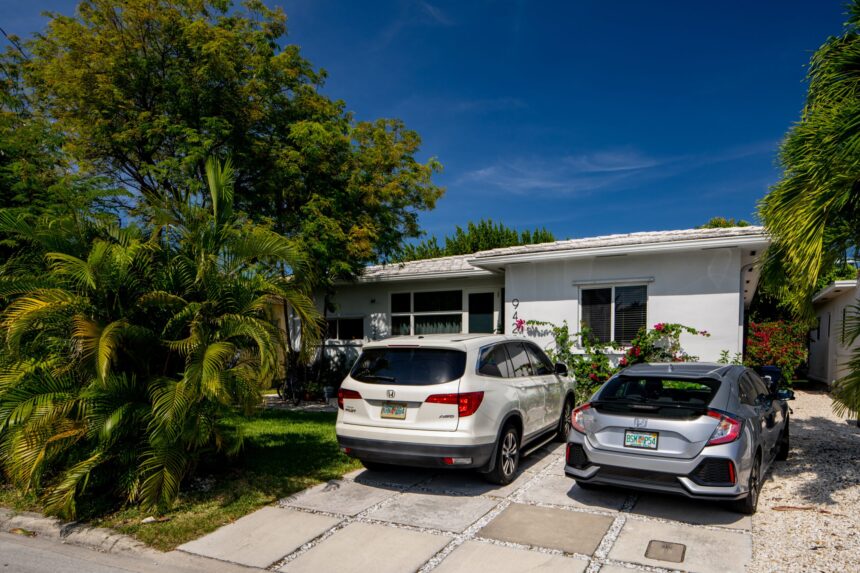Multi-car insurance means paying a single premium to guarantee multiple vehicles. Not only does this make bill management easier, but providers generally reward policyholders with discounts to guarantee multiple vehicles under one policy. We will determine whether your multicar insurance policy matches your needs by examining eligibility requirements, potential discounts, and available coverage options.
What is a multi-car policy?
Most car insurance companies offer multi-car (or multiple-car) insurance. Multi-car insurance is available through almost any insurance company and is in fact no different to standard car insurance. Multi-car insurance means that multiple vehicles are insured with car insurance. Think of it like a bondage insurance for multiple cars. The advantage of guaranteeing multiple cars through a single policy is that most providers will give discounts, usually known as multi-car or multi-vehicle discounts, to guarantee two or more cars in the same policy.
Each company may have its own requirements for multi-car insurance contracts. Some people will need to place all covered vehicles at one address, while other carriers consider their relationship with the vehicle owner’s policyholder. It’s never painful to ask a career about the specific criteria for multi-car insurance policies. If multiple people live in your household, multi-driver car insurance may also apply.
What discounts can I receive for multi-car insurance?
The discount rate for each provider to have a multi-car insurance policy will vary. You will need to get a quote to find the exact discount from your total premium, but here is what the provider advertises:
*According to the career at the time of publication.
Is there a limit to the number of cars I can ride in the policy?
All businesses differ in terms of the number of vehicles they can guarantee for a single policy. Many businesses can guarantee up to four vehicles in one insurance contract before they need a second car insurance. Some companies can guarantee more than four vehicles in one policy.
Generally, businesses require you to have a “insurable interest” in your vehicle before you can guarantee it. Insurable interest means you have a financial interest in your vehicle. This example is a vehicle you co-own. Whether the vehicle is covered and cared for due to the problem, as you have partial ownership.
If the company allows you to add cars to your policy that you do not own or jointly own, it may require that the owner be a family member of the home. Additionally, you may need to list that family as drivers for your policy or as non-insured benefits. Insurance agents should have more specific information about the company’s guidelines.
Can multi-car insurance cover multiple drivers?
In most cases, multi-car insurance policies cover multiple drivers. Imagine a family with two adults and two teenagers with three cars. That could happen any time. The driver and the car can be exchanged. In fact, for this reason, auto insurance providers generally require that all members of your household be listed in your multi-car insurance policy. This can extend beyond your family in your home and potentially apply to your roommates and domestic partners. Each insurance company has different rules, so you need to discuss it with your agents while building a multi-car policy.
How does coverage work with multi-car insurance contracts?
How policy mechanisms work depends on the insurance company. However, in most cases, you will need to maintain the same liability and uninsured/uninsured driver coverage across multiple vehicles. Typically, one vehicle and a vehicle with minimum coverage is not available for ultra-high liability coverage. In some states, if you have multiple cars with uninsured/uninsured driver coverage, you can “stack” them for higher limits. Therefore, if you have two vehicles each with $25,000 insured/uninsured driver’s physical injury liability coverage, your policy allows you to have up to $50,000 in one accident. However, coverage stacking is not permitted in all states, and even if your insurer is permitted in your state, your insurer can do it.
Liability limitations are usually consistent across multiple vehicles, but most insurers can choose to choose when it comes to comprehensive and collision coverage. These are optional add-ons that will help you pay for repairs to your vehicle after an accident that you cause, as well as other things like theft of your vehicle or weather damage. If there is comprehensive and conflict compensation in addition to liability compensation, it is usually referred to as a full compensation policy.
Deductible refers to the amount you are financially responsible for when you file a claim of a particular type. If you guarantee multiple vehicles in one policy, your insurance company may offer one deductible for the entire policy. Alternatively, each vehicle has its own deduction. Comprehensive and collision insurance typically has its own deductions. Like regular deductions, these may apply to individual vehicles or the entire policy.
When is multi-car insurance not an option?
Multicar policy can benefit some drivers, but that’s not an option for all scenarios. For example, if you want to insure your motorcycle, you will need to purchase individual motorcycle insurance and cannot be added as a secondary vehicle to your personal auto policy. Even if your insurance provider offers motorcycle insurance, you will not be allowed to insure your bike under the same policy as other vehicles.
The same applies to classic cars. If you have a classic car in your garage, we recommend purchasing a specialist policy. Classic car insurance offers more customized coverage for antique or unusual old vehicles, including higher refund restrictions for transportation repairs and coverage. Typically, you cannot obtain these coverage options with your personal car insurance.
Another example where multicar insurance policies may not be available is when splitting residencies between two states. For example, the vehicle can be stored in two locations. One is in each residence. If that happens, there are two policies and you are not eligible for multi-car discount insurance.










